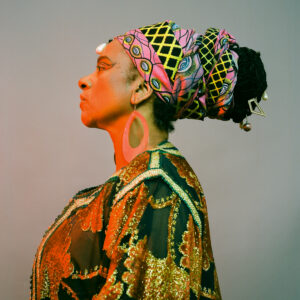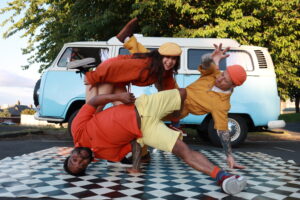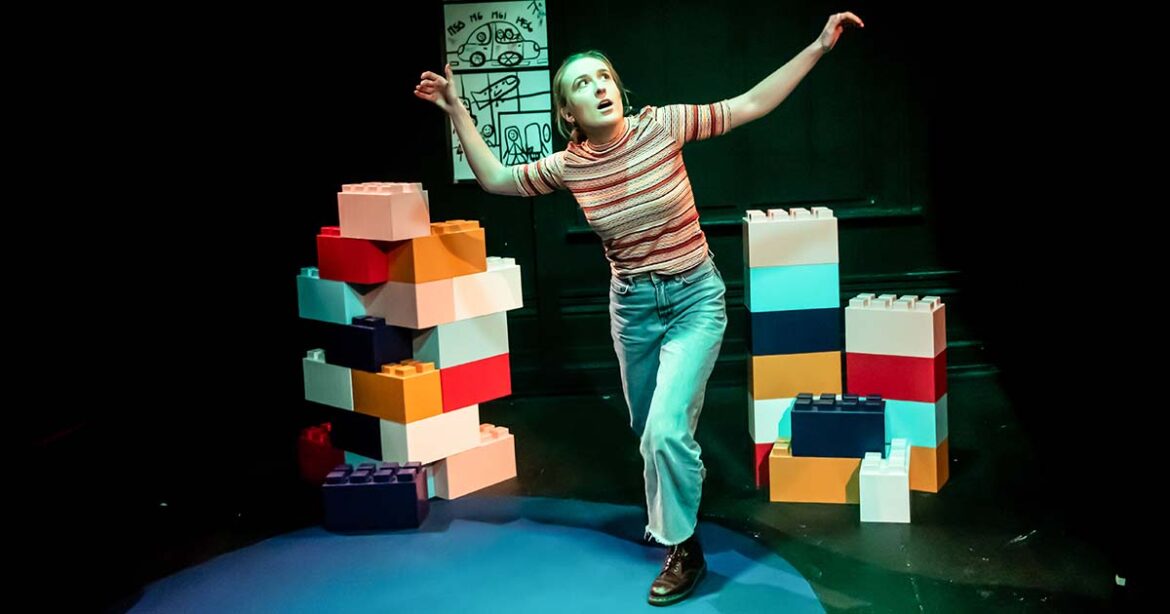Back for its 20th edition, Hotbed Festival, a Cambridge theatre favourite, will soon be ushering in a glittering programme of new theatre writing and production
Celebrating two decades, Hotbed Festival has, for its duration, been a staple of Cambridge theatre. The four-day event sees both regional and national playwrights at all stages in their careers showcase new work, ranging from sketches to completed projects – giving writers free rein to test out brand-new ideas on audiences.
In collaboration between Menagerie Theatre Company and Cambridge Junction, this year’s smorgasbord of a programme will revolve around a new play centred on the Ukraine crisis by Bohdan Tokarskyi and Maria Montague. Titled The Summer Before Everything, the verbatim play harks back to the revolution and war in 2014, steered by testimonies from Ukrainians living through impending disaster.
Also on the line-up is Menagerie Young Writers’ Workshop graduate Martha Loader, whose eerie work Splinter will be performed script-in-hand. En route around the UK, Irish powerhouse Deirdre Kinahan’s Bloody Yesterday, which, she says, “sits in my contemporary canon of psychological resilience, reinvention and connection”, will also arrive at Hotbed.
We caught up with Deirdre and The Summer Before Everything director Patrick Morris ahead of Hotbed’s opening this Friday 15 July.

Time Travelling with the Jazz Queens at Hotbed
Deirdre Kinahan, Writer of Bloody Yesterday
What were the beginnings of Bloody Yesterday and how did you come across the true story that it’s inspired by?
I suppose the story of Bloody Yesterday was actually with me for quite a while and I was just waiting for the right opportunity to write it. I met a wonderful woman, visual artist Debbie O’Hare, a number of years ago at the Tyrone Guthrie Centre. We became friends and had numerous residencies together. I remember her telling me once that her mum was English and had married her father before moving to Mayo, but just couldn’t settle there. She remembered herself and her sister jumping up and down on their mother’s bed and a strange taxi coming into the yard. She recalls distinctly looking out the window and her mother going into the taxi – I believe Debbie didn’t see her mother ever again, certainly not for 40 or 50 years. That story always stayed with me and made me think a lot about what it is to be a mother and how sometimes – even with the best of intentions and even if you’re a decent human being – you just can’t manage it and you just can’t make it work. I thought about both women and how it deeply affected them, even though I never knew her mother and never spoke deeply to Debbie about it. It was one of those stories that stayed in my head. A lot of it is fiction – the scenes that I make up in London and Mayo – but at the source it is a true event, something that impacted a woman I had great respect and tenderness for. Indeed, I think if it is published at all, I will dedicate it to Debbie O’Hare.
Was the title a deliberate referral to The Troubles and did the 50-year anniversary of Bloody Sunday – and the reflections it’s inspired in other culture – have an influence on your writing of the play?
This play is really inspired by that Billy Bragg song, that notion of what was, romantic interludes in your life and how they might stay with you – how they might break you or shape you. Music was a really important part of the play for me.
What made you want to explore motherhood? Why do you think more realistic – and less idealistic – explorations of motherhood are permeating culture?
I think feminism is a very important part of current conversations, political and social. Motherhood is being explored by a number of writers and artists. Indeed, I’m sure it always has been in one way or another, when permitted. I think at the moment in Ireland we’re in a very progressive place, as we move out of a deeply conservative Catholic culture into a far more progressive secular one. The whole notion of femininity, women, our place in society, how we work, how we function and this glorification of family is very much in the ether, in conversations and discussions. I’m a playwright of the moment and I seem to react and respond to conditions, conversations and concerns around me. I’m a feminist myself and was involved in the feminist movement in theatre, which absolutely revolutionised how women work in the arts today. When it comes to motherhood and the idealisation and domestication of women, it so goes ahead of our core humanity and needs. It’s those kinds of conventions that have ruled our lives for generations that are being questioned now, in a new way, and I suppose the ultimate sin was for a woman to desert her children – that is something society just never forgave. But, of course, no story is black and white. Human beings are fallible and made up of a complex swirl of emotions, needs and experiences and no one story fits all. It is interesting now that you have this exploration of the fact that not all women are natural-born mothers and that some women desire a different life. It’s really important to have those conversations to create empathy and understanding. When it comes to a mother and child, it’s always two human beings you’re looking at. A mother and a woman is as entitled to her life, ambitions and happiness as a child is. It’s interesting to look at, particularly at a time when great western democracies like America are starting to walk back into the middle ages and embrace strict, uncompromising, cruel and belligerent attitudes towards women, their lives and fertility.
Why did you opt to tell the play in monologues?
Opting to write the play in these synchronised monologues was really because I wanted to psychologically explore the experience of both characters. I knew that I was writing a short play for a very particular venue that is beautiful and dynamic, but limited in how it can accommodate theatre. The synchronised interconnecting monologues just seemed to really work both for the theme and the thrust of the play and the venue.
Why is music so important in this play?
Music is a really important part of my life and most lives. I was interested in the fact that with my children – 19 and 21 – when I watched their journey through music from One Direction and Justin Bieber when they were kids, right through to their teenage years, they started to embrace different forms of music and listen to various artists – old and new. I was struck by the fact that in ever-increasing commodities they listen to my music, to the music of the 90s, Nina Simone, Bruce Springsteen, The Cure, The Smiths, Billy Bragg and Eurythmics. It connects us. I thought that music would be something that connects this mother and daughter, even though they’ve been apart for most of their lives.
What makes the cast members ideal to play the roles of mother and daughter?
I didn’t know Sinead Keegan at all. The director Rex Ryan brought her to the party, but I was struck by what a wonderful young actor she is – so musical, physically adroit and with such an honest, human way of approaching character. Elizabeth Moynihan, I knew of old – we had worked together many moons ago. When we were thinking of Lily, I had a very particular notion of who she was, from a lot of time I’ve spent in London and the people I’ve met in the arts world. When Elizabeth’s name came to the fore, I knew she was perfect. Then the connection between the two women was incredible. They embraced the story, production, venue, the way it was going to be made – which in a small theatre is quite quick. It was a short rehearsal period and there wasn’t a great deal of resources or supports surrounding it – but when you’ve got a great story, director and two lead actors, you don’t need a lot more.
Bloody Yesterday was written specifically for the Glass Mask Theatre. How well does it translate to the J2 stage?
I think it can fit very neatly into the J2 stage and I really hope people respond to it the way they did in Ireland – it was a real success. People were just spellbound by the performances and I think the nature of the story. What’s great about Bloody Yesterday is that it speaks to two generations: Lily’s and to Siofra’s. I think women everywhere can key in and understand the impact that that event might well have on women anywhere. My work has never been to the Cambridge theatre scene before, so I’m really excited to be part of this festival. New writing festivals are invaluable to audiences and artists.

Valoris and the Expansions promises a hip-hop showcase
Patrick Morris, Director of The Summer Before Everything
How did the structure of the play emerge?
Bohdan and Maria brought a longer version of the text to Menagerie’s Young Writers’ Workshop. Over six months or so, they worked with me to shape the play into the current structure. They had over 100 hours of interviews to sift through and made some difficult decisions about which stories would suit the needs of the play. The title itself emerged from these conversations, as we delved more deeply into how the play – as opposed to their interviews – spoke to them and to potential audiences.
How have previous runs of The Summer Before Everything gone?
We presented the play initially at Hotbed 2016 – even then it was a powerful piece of theatre: direct, authentic and simple. Today, within the context of the war, it is even more poignant and necessary. We hear from characters who are re-living extraordinary events in their lives – events they never thought possible, that they never could have imagined. It also clearly shows that the war we all think began on February 24 2022 actually began back in 2014, with the advent of the ‘self-proclaimed republics’ and Russia’s invasion of Crimea.
What do you feel is the importance and value of addressing the issue of the war in Ukraine with art?
This play cannot claim to represent Ukraine and its residents. However, it takes us inside three very different stories of Ukrainians who experienced great upheaval as a result of war and revolution. As with any robust theatre piece, their stories become many people’s stories. In fact – and unfortunately – these characters could come from so many conflict zones well beyond the borders of Ukraine.
What impact do you hope The Summer Before Everything will make?
We hope that it will take audiences beneath the headlines. We find people who are sometimes very articulate and other times who are lost for words in attempting to relate their experiences. The play offers dignity to those experiences and invites audiences on a journey through the messy process of how we humans tell the stories of our lives.
Book tickets in advance at junction.co.uk and keep an eye on our homepage for upcoming Cambridge theatre shows.

